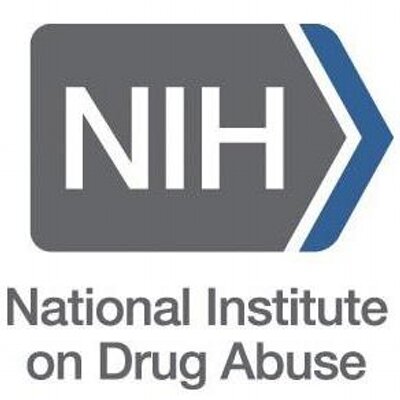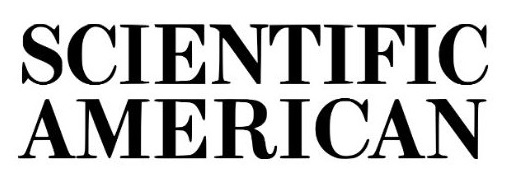Autism Spectrum Disorder
The term “spectrum” reflects the wide variation in challenges and strengths possessed by each person with autism.
Autism’s most-obvious signs tend to appear between 2 and 3 years of age. In some cases, it can be diagnosed as early as 18 months.
Call us at 469-714-0006 or email us at info@exulthealthcare.com
- Ongoing social problems that include difficulty communicating, interacting with others, and understanding relationships
- Excessive desire to stick to a fixed routine
- Repetitive behaviors as well as limited interests or activities
- Symptoms that typically are recognized in the first two years of life
- Symptoms that hurt the individual’s ability to function socially, at school or work, or other areas of life
In the past, Asperger’s syndrome and Autistic Disorder were separate disorders. They were listed as subcategories within the diagnosis of “Pervasive Developmental Disorders.” However, this separation has changed.
The latest edition of the manual from the American Psychiatric Association, the Diagnostic and Statistical Manual of Mental Disorders (DSM-5), does not highlight subcategories of a larger disorder. The manual includes the range of characteristics and severity within one category.
People whose symptoms were previously diagnosed as Asperger’s syndrome or Autistic Disorder are now included as part of the category called Autism Spectrum Disorder (ASD).
- Gender—boys are more likely to be diagnosed with ASD than girls
- Having a sibling with ASD
- Having older parents (a mother who was 35 or older, and/or a father who was 40 or older when the baby was born)
- Genetics—about 20% of children with ASD also have certain genetic conditions. Those conditions include Down syndrome, fragile X syndrome, and tuberous sclerosis among others.
Each individual with autism is unique. Many of those on the autism spectrum have exceptional abilities in visual skills, music and academic skills.
About 40 percent have intellectual disability (IQ less than 70), and many have normal to above average intelligence. Indeed, many persons on the spectrum take deserved pride in their distinctive abilities and “atypical” ways of viewing the world. Others with autism have significant disability and are unable to live independently. About 25 percent of individuals with ASD are nonverbal but can learn to communicate using other means.
- Autistic Disorder (also called “classic” autism)
People with autistic disorder usually have significant language delays, social and communication challenges, and unusual behaviors and interests. - Asperger Syndrome
People with Asperger syndrome usually have some milder symptoms of autistic disorder. They might have social challenges and unusual behaviors and interests. - Pervasive Developmental Disorder – Not Otherwise Specified (PDD-NOS; also called “atypical autism”)
People who meet some of the criteria for autistic disorder or Asperger syndrome, but not all, may be diagnosed with PDD-NOS. People with PDD-NOS usually have fewer and milder symptoms than those with autistic disorder.
- Doesn’t respond with a smile or happy expression by 6 months
- Doesn’t mimic sounds or facial expressions by 9 months
- Doesn’t babble or coo by 12 months
- Doesn’t gesture — such as point or wave — by 14 months
- Doesn’t say single words by 16 months
- Doesn’t play “make-believe” or pretend by 18 months
- Doesn’t say two-word phrases by 24 months
- Loses language skills or social skills at any age
Signs of Autism?
- Fails to respond to his or her name or appears not to hear you at times
- Resists cuddling and holding, and seems to prefer playing alone, retreating into his or her own world
- Has poor eye contact and lacks facial expression
- Doesn’t speak or has delayed speech, or loses previous ability to say words or sentences
- Can’t start a conversation or keep one going, or only starts one to make requests or label items
- Speaks with an abnormal tone or rhythm and may use a singsong voice or robot-like speech
- Repeats words or phrases verbatim, but doesn’t understand how to use them
- Doesn’t appear to understand simple questions or directions
- Doesn’t express emotions or feelings and appears unaware of others’ feelings
- Doesn’t point at or bring objects to share interest
- Inappropriately approaches a social interaction by being passive, aggressive or disruptive
- Has difficulty recognizing nonverbal cues, such as interpreting other people’s facial expressions, body postures or tone of voice
- Performs repetitive movements, such as rocking, spinning or hand flapping
- Performs activities that could cause self-harm, such as biting or head-banging
- Develops specific routines or rituals and becomes disturbed at the slightest change
- Has problems with coordination or has odd movement patterns, such as clumsiness or walking on toes, and has odd, stiff or exaggerated body language
- Is fascinated by details of an object, such as the spinning wheels of a toy car, but doesn’t understand the overall purpose or function of the object
- Is unusually sensitive to light, sound or touch, yet may be indifferent to pain or temperature
- Doesn’t engage in imitative or make-believe play
- Fixates on an object or activity with abnormal intensity or focus
- Has specific food preferences, such as eating only a few foods, or refusing foods with a certain texture
- Having overly focused interests, such as with moving objects or parts of objects
- Having a lasting, intense interest in certain topics, such as numbers, details, or facts.
Scientific Understanding of Autism
A view of both the parent and adolescent to adult child while being on the spectrum.
A summary of the autism spectrum as a developmental disorder in behavior.
Understanding the difference in gender and developmental disorders like autism.
Key Benefits of Therapy at Exult
At Exult, we have multiple professionals who are licensed in helping.
- Group therapy
- Individual therapy
- Access to on-site psychiatrist
- Providers work together
- Tailored programs
- Afternoon and weekend hours
- Yoga and Mindulness
Therapy will focus on social skills, language techniques, and verbal skills.
Early recognition and beginning therapy soon is key for greater social function.
We do take multiple insurances such as United, Blue Cross Blue Shield, Aetna, and Medicare but we suggest you discuss any major medical decisions with your insurance provider.
We offer medication management but we try to keep an open discussion between the client, therapist, and psychiatrist as to the needs of the client.
We offer screenings to help determine if you or your child is autistic. We also have an adolescent psychiatrist on staff.





